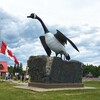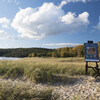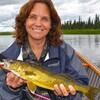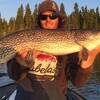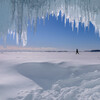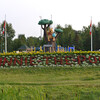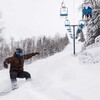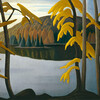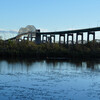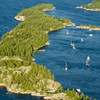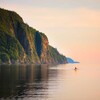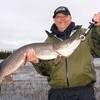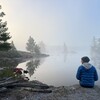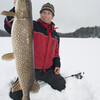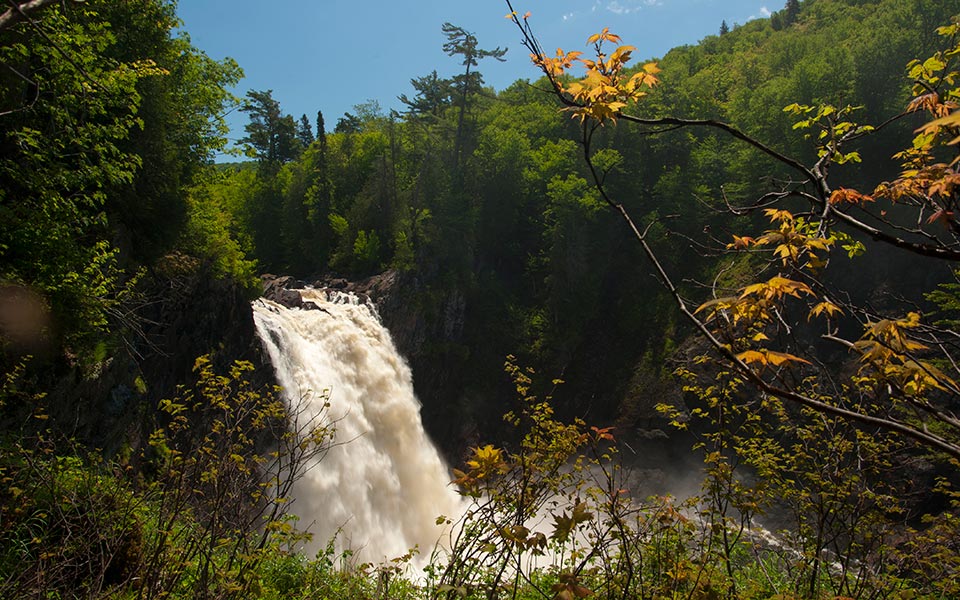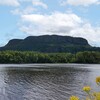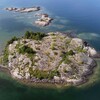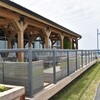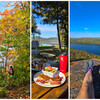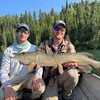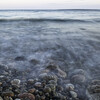
The Northern Lights
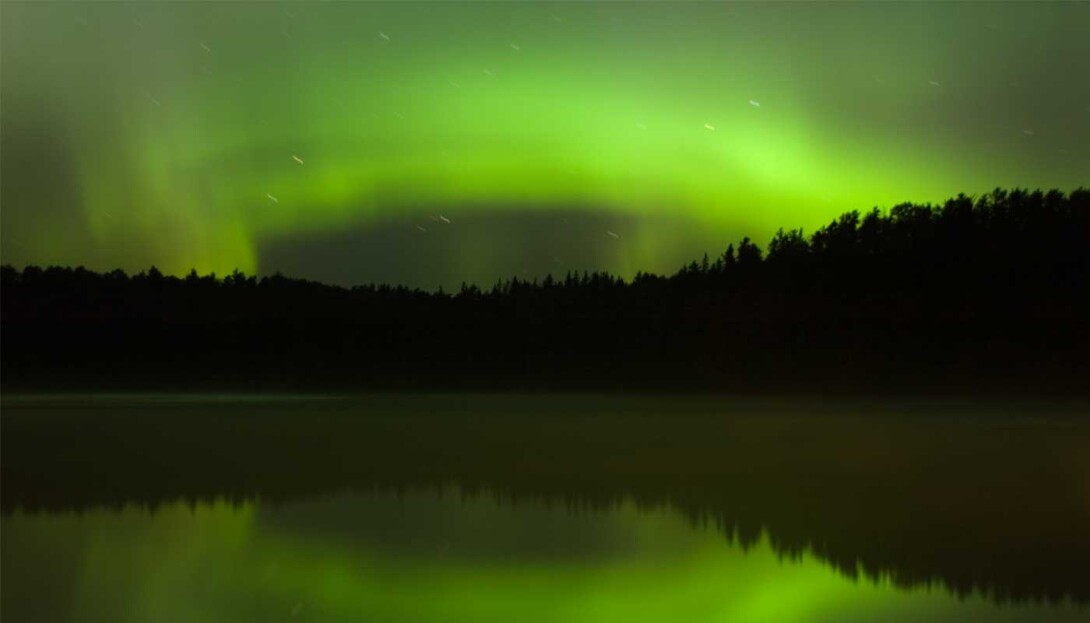
I've spent many nights wrapped in the comfort of a sleeping bag underneath the stars on the shoreline of Lake Superior. I have witnessed the phenomenon of the Northern Lights countless times. But you never, ever forget your first time.
My family spent their summers and weekends at Old Mill Bay in Algoma, Ontario. The shallow, warm water bay was five minutes past Harmony Bay on Highway 17, and about a half-hour drive from Sault Ste. Marie.
Old Mill Bay is close to Sault Ste. Marie but feels like a world away.
At Old Mill Bay we enjoyed the warm breeze, crisp waters, and in June, the mosquitoes. My mother rarely spent nights with us. Her kidney failure meant regular dialysis treatments and lengthy hospital stays. It was a rare occasion when my mother stayed overnight. When she did we'd enjoy our time with her in the morning—for breakfast, our first swim of the day, or a jaunt in the paddle boat. She was rarely present for the evening campfires, where my sister, father, and I would eat s'mores and roast spider dogs on the open flames.
Not having our mother around for these traditional camping activities was normal. We understood our mother's illness and the need for her to be in the city to receive treatment. However, things were about to change.
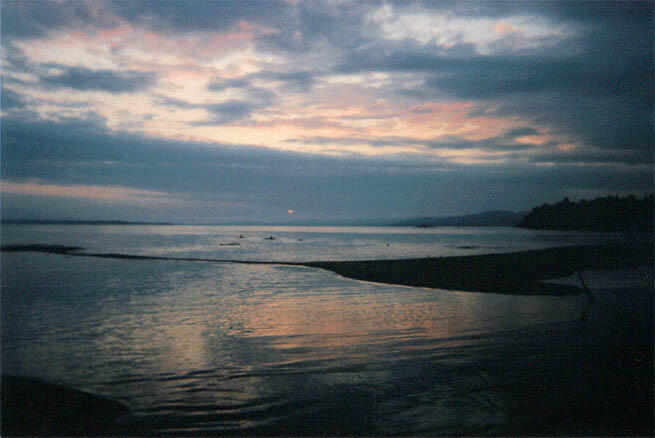
A New Beginning
My father donated a kidney to my mother—saving her life—and allowing her the opportunity to finally enjoy freedom from her illness. While our parents were undergoing their surgeries that summer, my sister and I stayed in the city with them. After they recovered from their procedures, we returned to our second home at Old Mill Bay. Only this time, my mother stayed the night.
In fact, she stayed every night. And took part in our evening rituals that she'd missed for so many years. It turns out my mother loved s'mores. I believe she ate three the first night she stayed at camp.
The Magic of the Northern Lights
That first night was just before Labour Day, and the evenings were beginning to cool. The sky was particularly clear, speckled with thousands of stars, and the old man's face on the moon watched over us. The water was perfectly still—a rarity for Lake Superior. The thousands of crickets were singing their evening tune, while the toads croaked in the creek down the beach from us. It was peaceful.
Then, the sky opened up in all of its glory. The Northern Lights. My father, my older sister, my mother, and I lay still on the beach, gazing awestruck at the sky. Even our dog Maggie was still—she seemed to forget about the bird she'd spotted moments before in the bush. The colours were so vibrant, so spectacular—like nothing we had ever seen before.
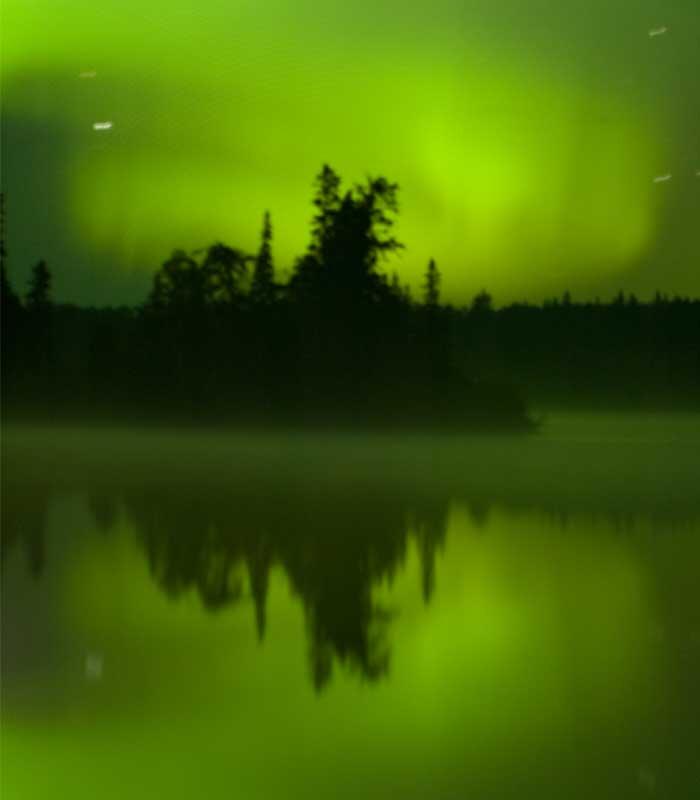
We stayed out under the stars for hours watching the lights dance. We forgot about everything else in the world. It will remain one of the most perfect and fond memories of my childhood.
As different cultures have beliefs about the lights and what they mean, so too do I. For me, they embody simplicity and perfection. Awe and amazement. Family and love. And perhaps most importantly, health.
Every time I've seen them since I remember Old Mill Bay. And the joy of that night spent in my favourite spot in Algoma Country.
How to See The Northern Lights
Despite increasing urbanization and light pollution which both inhibit night sky viewing, it's still possible to get a glimpse of the lights (for the first time or the 34th time) if you know where to look. We're lucky in Ontario, particularly in remote areas like the Northern Algoma region, there are many opportunities to see them shine. For those that have been fortunate enough to witness the phenomenon, the moment is truly unforgettable. Here are some tips.
1. Get remote. Your chances of seeing the lights are best in a remote area. Lake Superior Provincial Park is a great spot where city lights will not hinder the show.
2. Stay up late. During the darkest hours of the night—usually after midnight—when the northern lights are most visible.
3. Water makes it better. For the most spectacular show, try and find a calm body of water. The colours will reflect on the water, making the phenomenon even more special.
If you're lucky, you might just get the show of a lifetime. I hope your first time seeing the lights is as memorable as mine was.
Northern Lights Resources
SkyNews.ca
Aurora Watch offers tips for photographing the aurora borealis.
CSA
Follow AuroraMAX on Twitter or Facebook to receive updates on Northern Lights spotting opportunities.
Recommended Articles
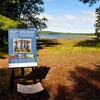
The Group of Seven in Algoma

9 Facts to Know about the Agawa Canyon Tour Train
